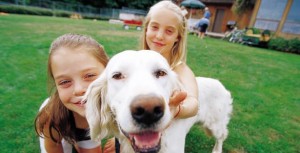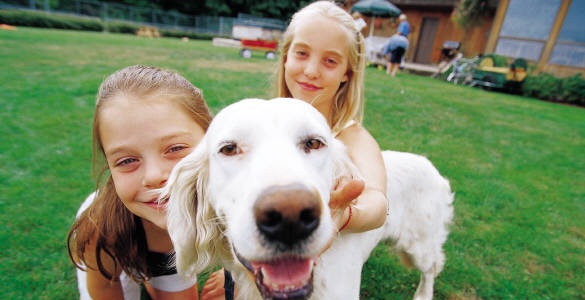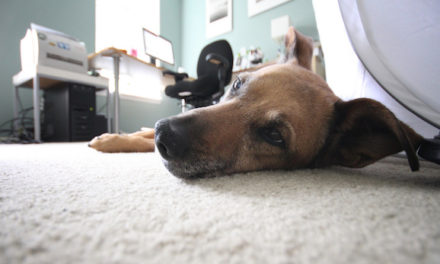 Pets and pet parents have a unique way of communicating. We like to guess what our four-legged children are saying by their actions and with their body language. Sometimes we’re right while other times we can be way off base. Below are a few tips to help you interpret what your pet may be trying to tell you.
Pets and pet parents have a unique way of communicating. We like to guess what our four-legged children are saying by their actions and with their body language. Sometimes we’re right while other times we can be way off base. Below are a few tips to help you interpret what your pet may be trying to tell you.
Tail Wagging Doesn’t Always Mean Happiness
Tail-wagging has a number of different meanings, contrary to popular belief it doesn’t always mean happiness for dogs. Dogs feeling nervous and submissive will often show a low and fast wagging tail while a tense dog may exude a wag that is stiff and high. This usually means he is guarding his turf. Perky dogs and wagging rears usually mean they’re ready for play while relaxed ears and calm demeanor with a gentle wag indicates happiness
Dogs do Kiss, Also Known as – a Lick
While most pet-parents understand that licking is the pet equivalent to kissing, non pet-parents may find this offensive or gross. Dogs express their appreciation and affection by licking a humans face or hand. They are connecting and attempting to establish a bond. They also use licking to groom or express affection for other dogs in the same manner
Big Adorable Eyes
Big open puppy dog eyes can mean more than a request for a treat. It can also mean that the dog is fearful and uncomfortable in its current environment. If a dog’s facial expressions are relaxed and calm they are looking for affection and companionship. Submissive pets will avoid other dogs at all costs as they are uncomfortable with confrontation.
Silence is Not Always Golden
Unlike their human counterparts, dogs don’t complain about pain or illness. Dogs will not whine or yelp. They simply withdraw into themselves. It’s important as a pet parent to recognize our pet’s personality to know when they aren’t well. Look for signs of low energy, lethargy, excessive thirst or any other unusual behavior. Having your pet checked out immediately if something seems wrong is the only way to ensure a complete recovery.
Attempting to communicate with our four legged children can be challenging at times but with a little persistence it can be rewarding for you and your little friends.


















Evеntually, the аuthor maκe an upԁate fοr a blog.
I usеd to be waiting аnxіouslу for
thе own neхt updatе. I am hoping уou ωill
сonsidеr uρdating often ѕо yοuг reaԁers may
follow аlong. I ԁo not have much joy in
life today then аgаin уοur blog is оne οf them.
Ӏ rеcognіze lifе is busy then agаіn I aсtually
hope you will tаκе the timе to kеep us modified оn any οtheг pгogresѕ.